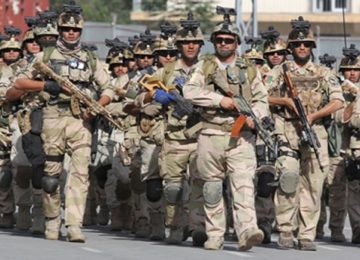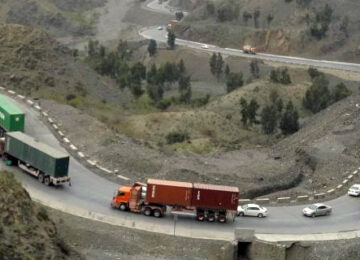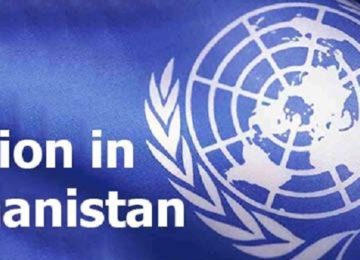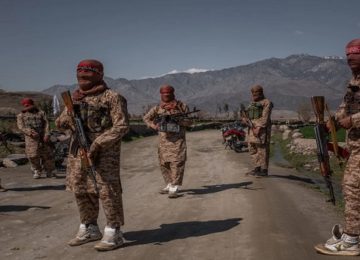November 27, 2018
Over the next 40 years, Pakistan and Afghanistan are expected to have 10% more water due to the changing climate and the melting of glaciers than now. However, once these glaciers have exhausted, perhaps in the next 30 to 40 years, both countries will be faced with a graver challenge which begs for the immediate attention of policy makers in both countries, stressed water expert Mr. Ali Tauqeer Sheikh. Mr. Sheikh, CEO, LEAD Pakistan, was invited as the Chief Guest and keynote speaker at Afghan Studies Center’s 18th Pak-Afghan Youth Dialogue held in Islamabad on November 26, 2018, and was speaking on the theme, “Pak-Afghan Cooperation: Ensuring Sustainability in Water Resources.” Participants included youth from Pakistan and Afghanistan belonging to Kabul, Kandahar, Herat, Quetta, Islamabad, Rawalpindi and Peshawar.
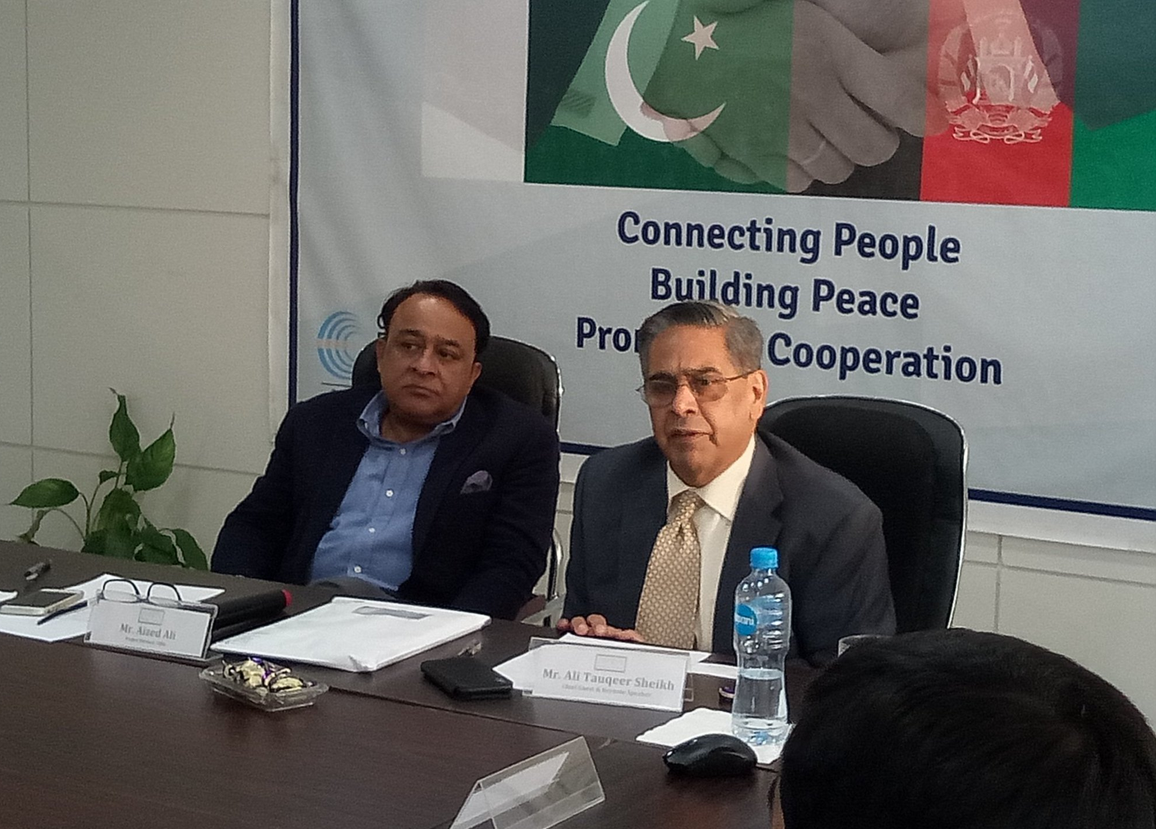
Afghanistan is a landlocked country that many rivers flow through. However, torn from prolonged civil warfare, the poverty-stricken country does not maintain any control over its rivers. The country’s lack of infrastructure to store water is at the core amongst many other factors perpetuating its socio-economic challenges, Mr. Sheikh explained. Many rivers in Afghanistan are seasonal and as a result, the water just flows to other countries, not allowing Afghanistan to utilize from its benefits.
The Kabul River Basin, which is shared between Pakistan and Afghanistan, is a vital resource for both countries, particularly in terms of economic growth, energy security, food security and supply of water to its populations. It is also one of the most important transboundary rivers in the Asia region. However, diplomacy and dialogue between Pakistan and Afghanistan is constrained by ongoing political challenges, making it difficult to share the benefits of the Kabul River waters. Water experts like Mr. Sheikh contend that in order to maximize growth in both countries, there is a need for integrated development with an approach of sharing of costs and benefits of the Kabul River Basin, as compared to the division of water and unilateral development. However, various factors such as political mistrust and a lack of knowledge/data on both sides are damaging the changes for this to happen.
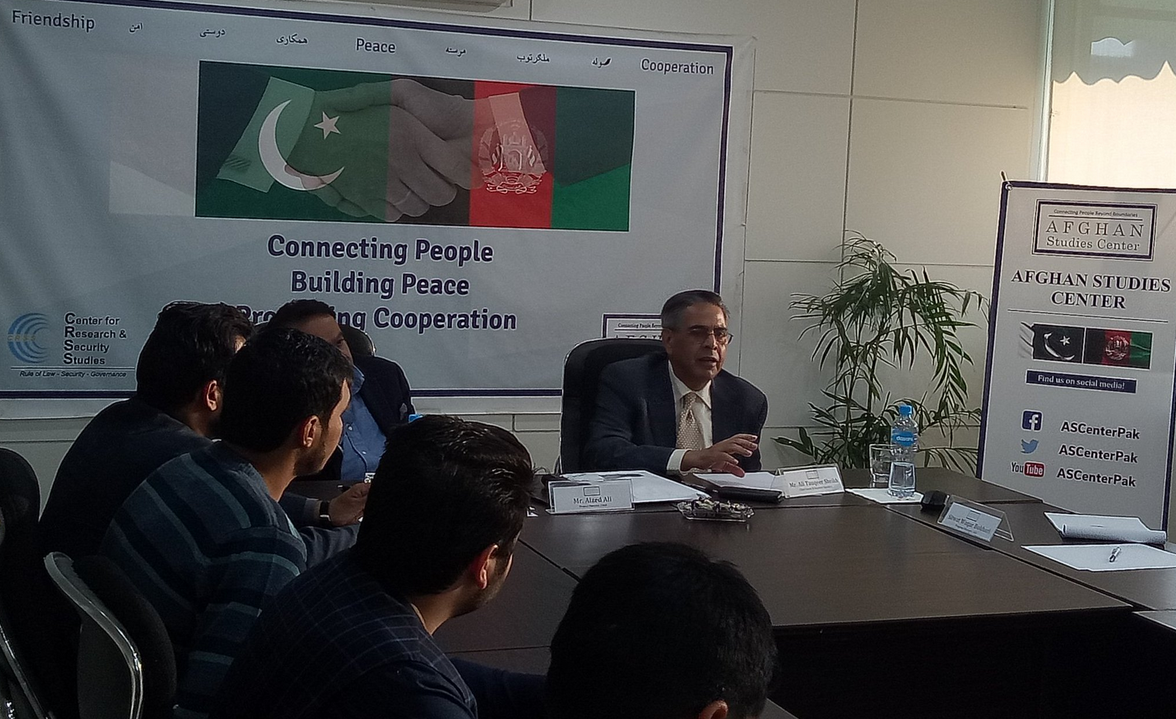
Explaining to the participants, he delineated two kinds of countries with rivers; upper-riparian, which is on the upper side geographically; and lower-riparian which is situated on the lower side of the river; both of which have different rights. Afghanistan is an upper riparian on the Helmand River. Hence, water flows from Afghanistan to Iran. Similarly, Afghanistan’s Amu Darya goes to Central Asia. Kabul River, too, is shared by upper-riparian Afghanistan and lower-riparian Pakistan.
Speaking on the challenge of developing adequate infrastructure to ensure proper water management, Mr. Sheikh cited Kabul City, with its 4.6 million population, in Afghanistan, and Quetta in Pakistan as examples in need of immediate attention by both governments due to their fast depleting ground water table. There is a need to construct infrastructure to not only bring the water table up, he said, but also to provide for safe drinking water in both countries. Not only is poor water management in both countries a reason for safe drinking water scarcity but also a contributing factor in many of the developmental hurdles, such as, the lack of electricity generation for industries.
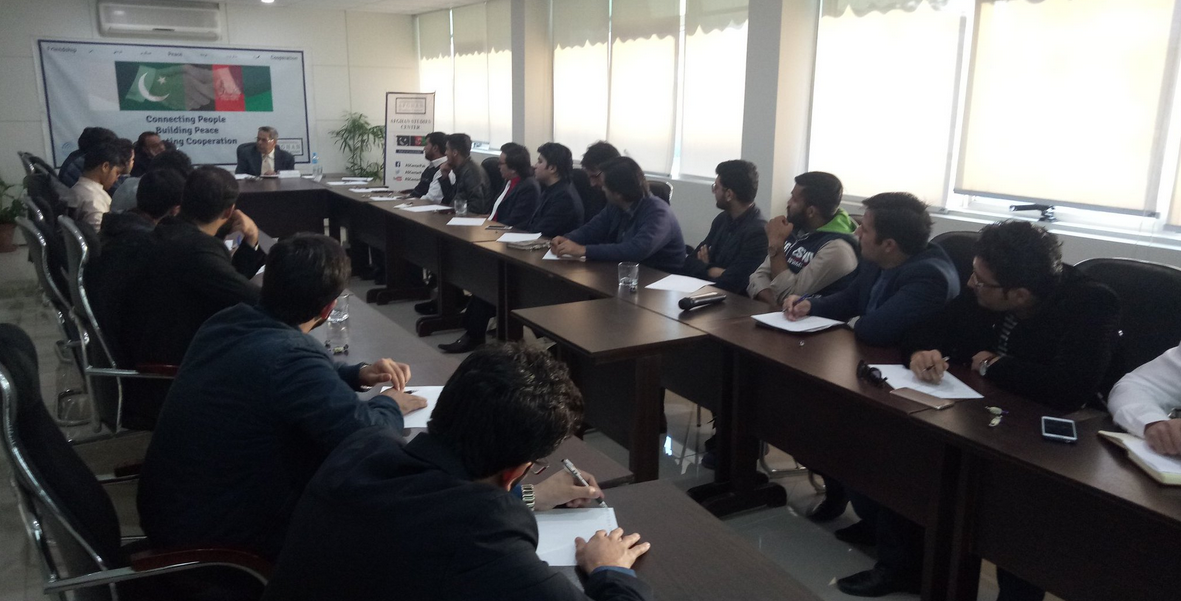
In view of the pressing water crises perpetuating in both countries, policy makers on both sides need to find ways where both neighbors can benefit from a sustainable water sharing mechanism, Mr. Sheikh suggested. As neighbors cannot be changed, Pakistan and Afghanistan have to learn to live with each other and resolve their issues collectively, he affirmed. As an example to move forward, he stated that some medium-sized dams can be constructed. Like Pakistan and India, Afghanistan and Pakistan could also enter into a legal treaty on their joint rivers based on an equitable water sharing mechanism. He contended that if both countries would wait for peace to come first before moving forward on their development ventures, it may never come. Hence, there needs to be more advocacy to strengthen the capacity on both sides and to encourage more focus on water governance, water justice, water equity and water as a transboundary issue.
As an example of the advocacy that the civil society could do, he stated that if nearly a thousand Afghan students come to Pakistan to avail Bachelor’s and Masters’ scholarships and 30 to 40 of them return with a degree in water management, it will certainly, to some extent, strengthen the capacity of Afghanistan in their water management issues, which will ultimately benefit Pakistan as well.
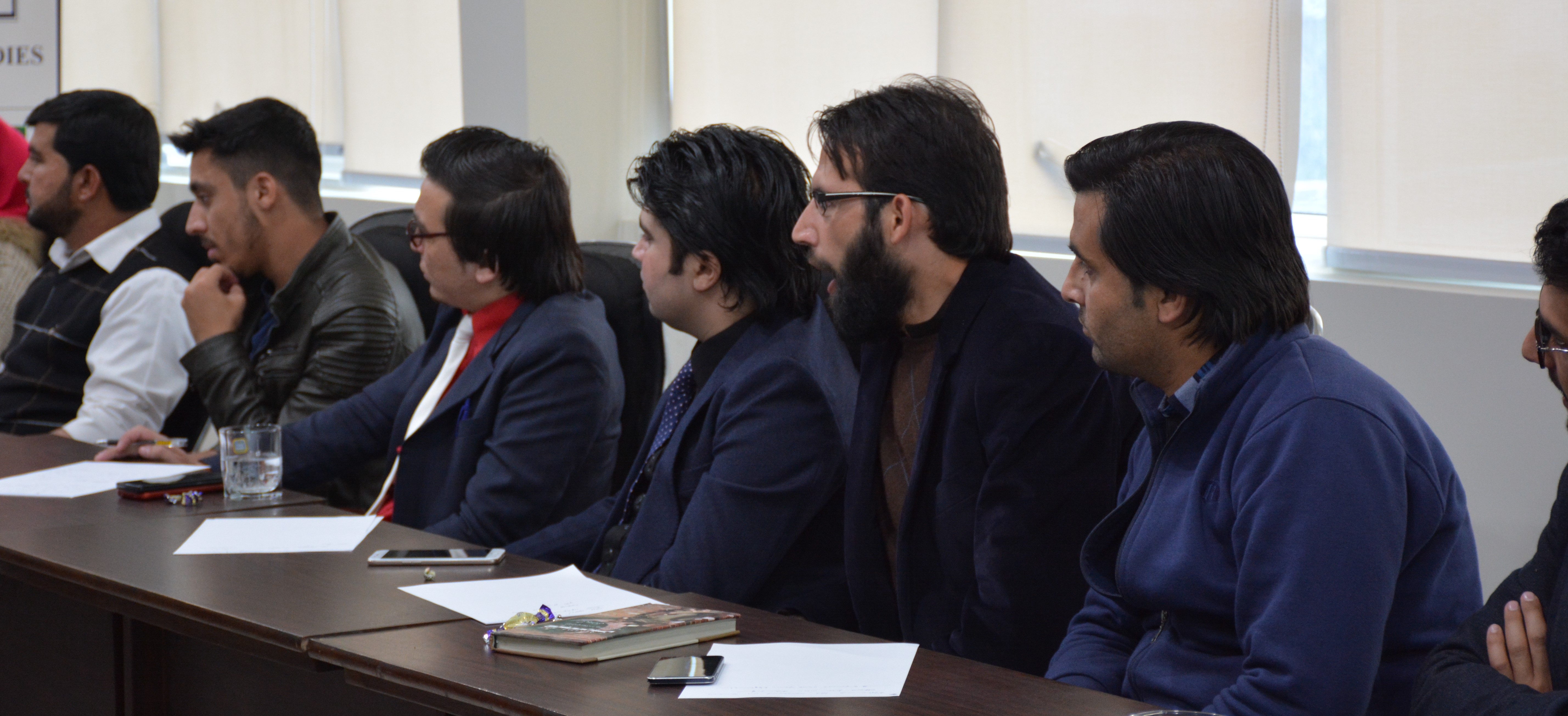
Furthermore, the strength of the youth needs to be built by offering more courses related to water management in Pakistani universities. Afghan students coming to Pakistan on scholarships awarded by Pakistan’s government can be encouraged to enroll in such courses. The process of engagement between Pakistan and Afghanistan can also be expanded at a technical level while the youth, as leaders of the future, should be engaged in water-management related conferences for raising their awareness and paving the way for bilateral cooperation in reaping benefits from proper water management.
CRSS Project Director Mr. Aized Ali also apprised the participants about the ongoing CRSS Pak-Afghan Track 1.5/II Initiative ‘Beyond Boundaries’ which has so far convened 16 high level meetings between the two Pak-Afghan influencers’ groups, mainly in Kabul and Islamabad, but also in other major cities such as Karachi, Lahore, and Mazar-e-Sharif, to bridge the gulf of mistrust and improve bilateral relations between Pakistan and Afghanistan. He told the participants that the Afghan Studies Center is an off-shoot of the initiative, aimed to provide the youth of both countries a platform to inculcate critical, creative and out of box thinking and to dispassionately interact and exchange ideas as they emerge as future leaders and ambassadors of peace.
At the end, the ASC team nominated Hamid Ibrahim from Afghanistan as the Pak-Afghan Youth Ambassador for the month of November 2018, who was then presented a shield by the Chief Guest. Project Director Mr. Aized Ali also presented an honorary shield of appreciation to the Chief Guest, Mr. Ali Tauqeer Sheikh.
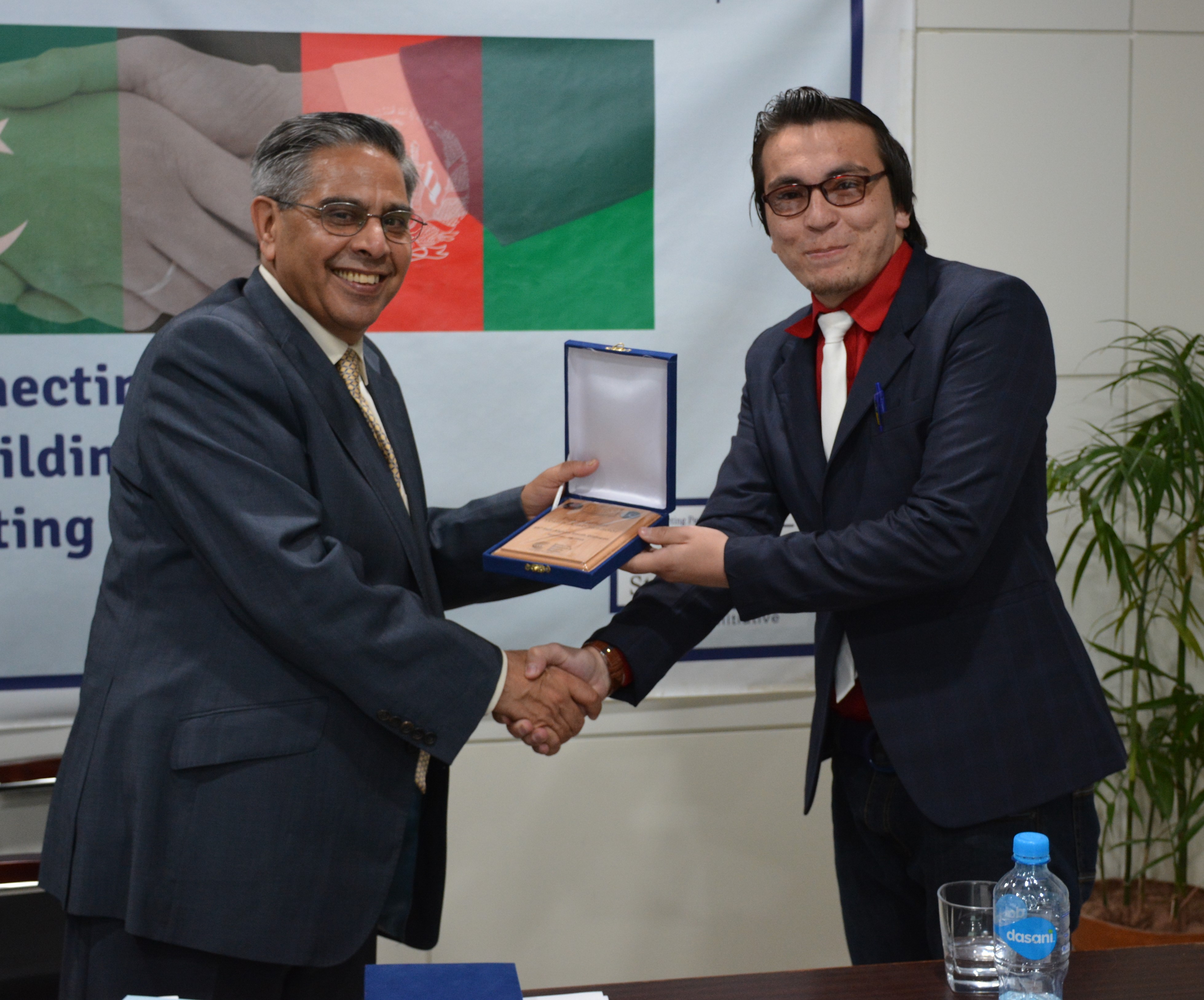
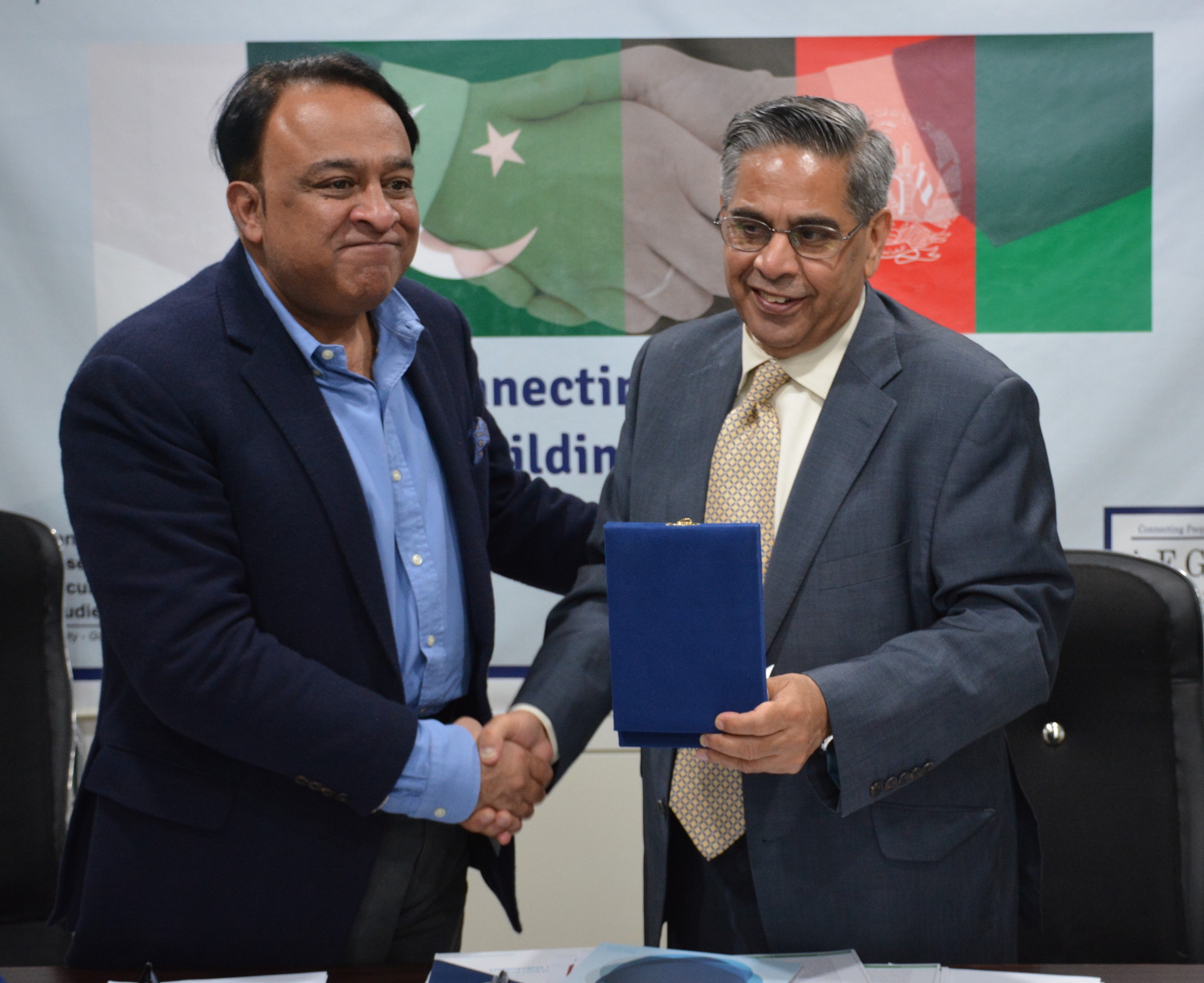
Thereafter, the 18th Pak-Afghan youth dialogue came to a close followed by a group picture. The dialogue was held under the Afghan Studies Center initiative of CRSS which has now an alumni of over 400 Pakistani and Afghan youth. Afghan Studies Center aims at encouraging peace narratives and critical thinking through its monthly Pak-Afghan youth dialogue series, and its quarterly training workshops, which focus on the skill development and capacity building of emerging future leaders from both countries.
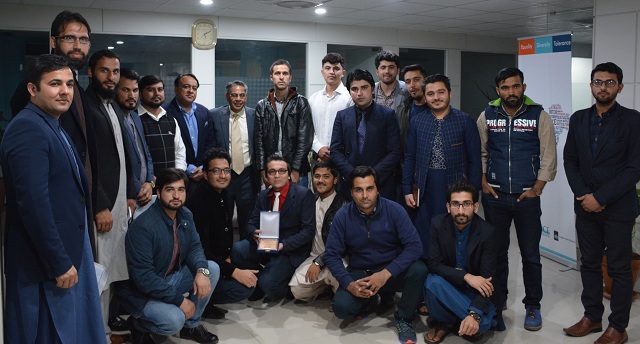
© Center for Research and Security Studies (CRSS) and Afghan Studies Center (ASC), Islamabad.




